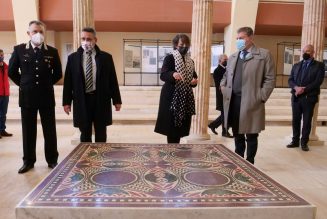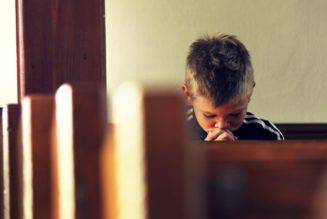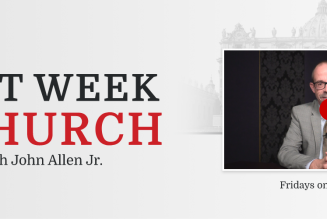
The first session of the “Synod on Synodality,” currently meeting in Rome, is slated to be followed by a second such month-long affair in October 2024. Both aim to build a “Synodal Church of Communion, Participation, and Mission,” which is certainly a laudable goal. Two weeks into Synod-2023, however, it must be asked whether the Synod’s methodology is conducive to serious conversation characterized by the parrhesia – the frank speaking – so often recommended by Pope Francis.
The Catholic Church has been holding synods since 1967, two years after Paul VI created the Synod of Bishops. No one involved in these gatherings over the past half-century is likely to argue that a perfect method for making synods interesting, effective, and humanly bearable has ever been devised. Rhetoric can, and has, gotten out of control: one weary cardinal, asked after the first week of Synod-2001 whether everything had been said on the synod’s topic, replied. “Yes, everything has been said. But not everyone has said it.” Different methodologies – more open discussion in general assembly; more small-group discussions, openly structured; – have been tried. None has proven completely satisfactory.
What is particularly striking about Synod-2023, however, is how closely micro-managed its small-group discussions are. The synodal Instrumentum Laboris (Working Document) includes thirty-three single-spaced pages of “Worksheets” through which the small groups are to make their way, question-by-question, in precisely time-calibrated segments monitored by “facilitators” appointed by the Synod General Secretariat. Whether this method of discussion-management (or discussion-control) will prove an improvement over previous synodal methodologies remains to be seen; the odds seem long to me.
This raises the question of whether the discussion might be gingered up if the prescribed questions, which are largely focused on issues of intra-Church process as defined by the (secular) criterion of “inclusivity,” were complemented by dropping questions of a more substantive, Christian nature into the conversation. Happily, such a set of questions was suggested by Archbishop Joseph Naumann of Kansas City, Kansas, which I found in a statement by the International Catholic Jurists Forum published in the National Catholic Register. If I may paraphrase:
Does the call of Christ for repentance, with which the Lord began his public ministry (cf. Mark 1.15), necessarily create an ecclesial culture of “exclusion”?
How should we understand the Lord’s clear, countercultural, and challenging teaching on the permanence of marriage, or on the consequences of undisciplined appetites? Are these teachings alienating? Might they be liberating? And if liberating, what do they teach us about the true meaning of freedom?
Many followers left Jesus after he told them, “Unless you eat the flesh of the Son of man and drink his blood, you have no life in you” (John 6:53). Given that abandonment, and the Lord’s follow-up question to those who remained (“Do you also wish to go away?” [John 6.57]), can we say that radical inclusivity was the Lord’s highest priority?
– Advertisement –
Why should Catholics be surprised or made uncomfortable when so many people in Western societies reject the Church’s moral teaching on the life issues, on the true expressions of human love, and on our created givenness as men and women? Does rejection of those teachings mean that they’re wrong? Those teaching are surely countercultural today; but doesn’t their rejection call us to more effective communication of the truths the Lord has given the Church?
What has drawn people to Christ and the Church over two millennia – an inclusivity that rendered the Church indistinguishable from the ambient culture and surrounding society, or a mode of life that, while countercultural, was manifestly more life-affirming and ennobling?
It is certainly true that “everyone is welcome in the Church,” as we hear so often today. But mustn’t that sentence be completed, such that it’s clear that everyone is welcome in the Church on Christ’s terms, not their own? In our work of evangelization, how do we communicate that with compassion, recognizing that we are a Church of sinners who often fall short of the mark – but who have no authority to change the mark?
These questions should prompt a synodal reflection on why John Paul II was such a powerful evangelical magnet for young people. It was not, I suggest, because he pandered to them. It was because he was transparently honest about the demands of the Gospel and challenged young adults – and the rest of us – never to forget that the grace of God makes spiritual and moral grandeur possible in our lives.
If the call to “inclusivity” means rubbing the sharp edge off the Gospel, then that call is not a work of the Holy Spirit.
George Weigel is an independent columnist whose weekly column is syndicated by the Archdiocese of Denver. The opinions and viewpoints expressed by Mr. Weigel therein are his alone and do not necessarily reflect those of the Archdiocese of Denver or the bishops of Denver.








